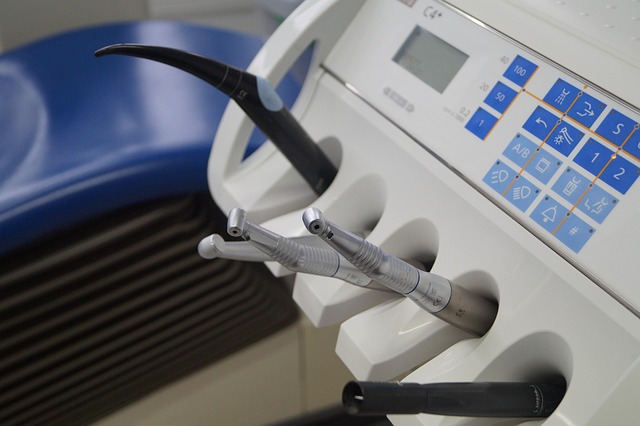Finding Affordable Periodontal Care in McAllen

Low cost dentist McAllen offers expert periodontic care with flexible payment plans and insurance ac…….
In the vibrant city of McAllen, Texas, a dental revolution is underway, offering affordable and accessible care to all. The concept of “Low Cost Dentist McAllen” has emerged as a game-changer, addressing the critical need for budget-friendly dental services in this diverse community. This comprehensive article aims to explore every facet of this innovative approach, from its foundational principles to its global impact and future prospects. By delving into various aspects, we will uncover how low-cost dental care is transforming lives and shaping a healthier future.
Definition:
Low Cost Dentist McAllen refers to a model of dental healthcare delivery that prioritizes affordability and accessibility without compromising quality. It involves offering comprehensive dental services at significantly reduced rates, making advanced care attainable for a broader segment of the population.
Core Components:
Historical Context:
The idea of low-cost healthcare has been gaining momentum globally for decades, driven by growing awareness of health disparities and the need for universal access. In McAllen, the initiative stems from a collective effort between local dentists, community leaders, and government agencies to address oral health inequalities. Over time, this collaborative approach has evolved into a well-structured model, now recognized as a successful strategy for improving dental health outcomes.
The concept of low-cost dental care has transcended national boundaries, sparking interest worldwide. Several key trends are shaping its global impact:
| Region | Trends | Impact |
|---|---|---|
| North America | Increasing collaboration between community health centers and private practices to offer affordable services. | Improved access to care for underinsured individuals. |
| Europe | Government-funded dental care programs targeting low-income groups. | Reduced oral health disparities across socioeconomic status. |
| Asia Pacific | Mobile dental clinics and community-based initiatives in rural areas. | Addressing the lack of dental services in underserved regions. |
| Latin America | Public-private partnerships for dental health education and access. | Enhanced oral health awareness and prevention strategies. |
These global trends highlight a growing recognition of the need for inclusive, affordable dental care, mirroring the success seen in McAllen.
Market Analysis:
The low-cost dental market in McAllen operates within a competitive yet supportive ecosystem. Local businesses have embraced this model, leading to:
Investment Patterns:
Economic Impact:
Digital Transformation:
Technology plays a pivotal role in modernizing low-cost dental care. Here’s how:
Impact on Accessibility:
Technological innovations significantly enhance the reach of low-cost dental services:
Regulatory Frameworks:
The success of low-cost dental initiatives relies on supportive policy environments. Key considerations include:
Policy Impact:
Common Hurdles:
Despite its successes, low-cost dental care faces several challenges:
Proposed Solutions:
McAllen Dental Clinic Example:
The McAllen Dental Initiative (MDI) is a prime example of successful implementation. Here’s how they achieved impact:
Global Perspective: The Brazilian Model:
Brazil has successfully implemented a low-cost dental program, “Saúde Bucal Popular” (Popular Oral Health), reaching millions. Key factors include:
Emerging Trends:
The future of low-cost dental care is promising, with several trends shaping its trajectory:
Strategic Considerations:
Low Cost Dentist McAllen represents a significant step forward in ensuring accessible, quality dental care for all. By combining innovative practices, technological advancements, and community engagement, this model has proven its worth globally. As we look ahead, the future holds immense potential for expansion and further refinement, shaping a healthier, more inclusive dental landscape.
Q: Is low-cost dental care as effective as regular dental practices?
A: Absolutely! Low-cost clinics adhere to the same strict standards and regulations as any other dental practice. With advanced technology and dedicated professionals, these clinics provide high-quality, cost-effective care.
Q: How do I find a low-cost dentist in my area?
A: Many low-cost clinics have websites or community boards listing their services and locations. Local health departments or community organizations can also provide referrals to trusted providers.
Q: Are there financial assistance programs available for dental care?
A: Yes, various government and non-profit organizations offer financial aid for dental services. These programs often target low-income individuals and families, providing subsidies or grants for necessary treatments.
Q: Can I use my insurance for low-cost dental services?
A: Many insurance plans are designed to cover a range of dental services, including those offered at low-cost clinics. Check with your insurer to understand your coverage and any specific requirements.
Q: How can I contribute to improving access to dental care in my community?
A: You can volunteer your time or donate to local dental initiatives. Awareness campaigns and educational programs are also powerful tools to encourage oral health awareness and support low-cost care efforts.

Low cost dentist McAllen offers expert periodontic care with flexible payment plans and insurance ac…….

McAllen residents face limited access to affordable dental care. Dr. Cazares, a low cost dentist McA…….

McAllen residents now enjoy access to affordable dental care through various low cost dentist McAlle…….

McAllen residents now enjoy access to high-quality, affordable dental care through innovative practi…….

McAllen residents now have access to low cost dentist services from experienced periodontists. Pract…….

Modern dentistry in McAllen leverages cutting-edge technology for personalized, effective, and affor…….

McAllen residents enjoy improved access to low cost dental care thanks to dedicated professionals an…….